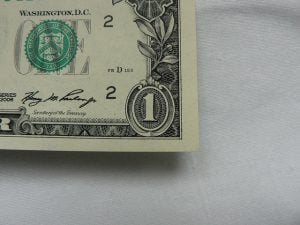
Flickr user rychlepozicky.com
Prioritization is one of the most important skills you’ll cultivate throughout your college career. Because of time constraints and finances, you’ll have to determine what is most important to you, and accomplish your tasks in an appropriate order. Simply put, if you want to go to a party on a Thursday night, you better make sure your essay due Friday morning is finished before you walk out the door.
When you start repaying your student loans
The experience you’ll gain in this area will come in handy almost immediately once you enter the “real world,” and have to confront your student loan debt. Most students receive their first notice that a repayment is due about six months after graduation. To some, this comes as a very unpleasant surprise, but others have prepared themselves for the repayment process and know what to do. If you’ve been practicing your skills in figuring out priorities, repaying your student loans won’t be as big a nightmare as it seems.
Which student loan should you pay off first?
According to statistics gathered over the past year, both public and private student loans remain popular. Over 42 million students received some form of financial aid from the federal government, with two million more students receiving private aid. For students who benefited from both federal and private loans, figuring out the first step is especially important. Those in debt to both sources may be confused about which to pay off first. Private loan companies have more stringent repayment plans, but on the other hand, it may be intimidating to owe money to the government for a longer period of time. The simple answer is that, in most cases, you should start with private loans. This boils down to the fact that private loaners tend to be less flexible and usually don’t ease your payments based on your career path, like federal loans would for public servants.
However, if your personal financial situation would make it easier to pay off a private loan down the road, this is not a hard-and-fast rule. Federal loans can just as easily be paid off first, and depending on your repayment plan, you can start to get this burden off your back relatively quickly. Most federal loans have repayment periods of ten years that kick in immediately upon graduation. However, if you’ve decided to refinance your loan, this time period can be extended for a longer period of time. Depending on the specifics of your refinancing, your federal loans may not be due (in full) for another two decades.

Try to pay off your private loan first
Unless you’re especially concerned with the ten-year default repayment period applied to federal loans, it’s usually a good idea to pay off your private loans first. Once these are out of the way, you can immediately move on to planning repayment of your federal loans. However, if your priorities are flipped and you feel it’d be better to repay your federal loans first, that’s a more than reasonable option. All other factors being equal, it’s better to pay off the less flexible loan first, whichever one that may be for you.
Use College Raptor to discover personalized college matches, cost estimates, acceptance odds, and potential financial aid for schools around the US—for FREE!





